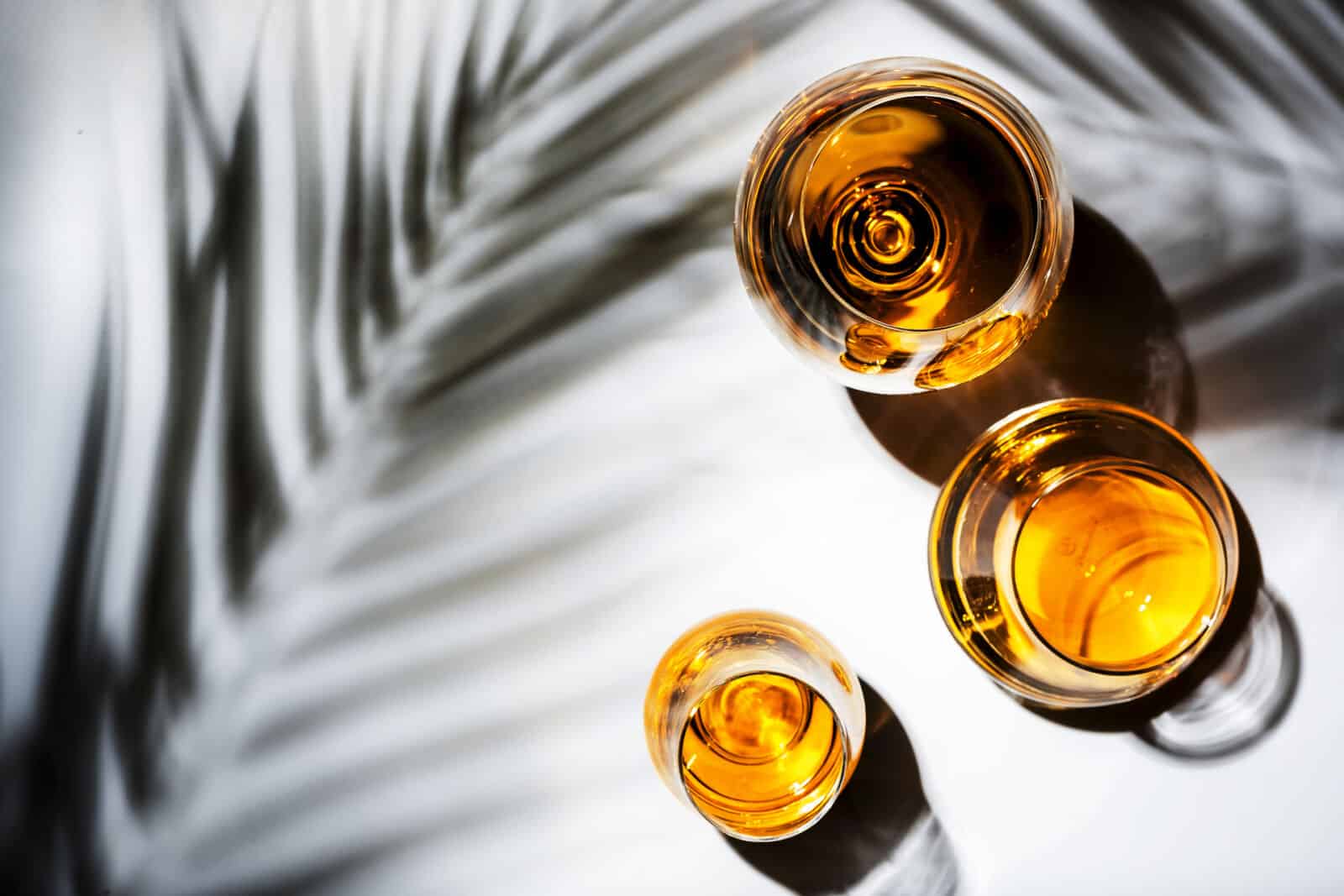One of the coolest parts of craft cider is that it’s ever-growing — we are not a static entity, but one that is alive and evolving. For instance, the American Cider Association recently added mistelles to the dessert cider family. This category of cider isn’t well-known to us, and prompted us to ask (as any curious cider-lover might): What is mistelle?
The long and short of it is that a mistelle is a drink made from unfermented or just slightly fermented fruit juice that has been fortified with a distilled spirit, typically one made from the same kind of fruit. Very often (at least with apples) the spirit has been aged in oak for some period of time before fortifying the juice, and the combination is also often aged further. They are sweet and have higher alcohol than your typical cider (16% to 20% ABV) and are most commonly made from apples or grapes, though really any fruit can be made into a mistelle.

In the cider world, pommeau is one of the most well known mistelles. Pommeau de Normandie, Pommeau de Bretagne, and Pommeau de Maine hold Appellation d’Origine Contrôlée (AOC) status, a certification of authenticity granted to certain geographical indications. They are made under strictly controlled conditions from a list of particular apple varieties grown only in the area of the AOC. Other similar products in France have names like ratafia and apéritif de cidre as well as mistelle such as Eric Bordelet’s gorgeous Mistelle de Pomme. Cidermakers outside of France also sometimes call their products pommeau, but more are beginning to give them other names.
Tom Oliver of Oliver’s Cider and Perry, based in Herefordshire, England, explains a bit more: “Pommeau, being both a French word and also a drink so clearly connected with France, particularly Normandy,” he notes. “It seems mistelle is a cover-all term for any drink made by using part distillate and part fresh juice or fermented juice to create a drink about 18% ABV and multiple variations on that theme.”
Apple-based mistelles can be found in many parts of the world such as Australia (Carmel Cider Mistelle and Small Acres Cyder Mistelle), Canada (Michel Jodoin’s Golden Mistelle and Mistelle Rosée) and elsewhere in Europe (Germany-based 1785 Cider Mistelle.
While the word mistelle is less commonly used in the US, Alpenfire Cider in Port Townsend, Washington, began releasing a dessert cider called Apple Mistelle in 2018. Nancy Bishop, owner of Alpenfirer, credits a sense of whimsy to her choice to label that particular fortified cider as mistelle versus pommeau.
“The simple reason is that I have always liked the word mistelle — it makes me think of mistral, the wind that blows over the Mediterranean sea,” she says. “I knew that mistelle was a fortified wine but I wasn’t sure the TTB would allow it for a cider. But they did, and gave us a COLA (Certificate of Label Approval/Exemption) for it in 2019, as a fanciful name.”
Have you seen mistelles out there in the wild? We’re curious to see if this term becomes incorporated into more packaging, as it is a looser umbrella term and less tied to Normandy than pommeau!
- Feature photo: Bigstock